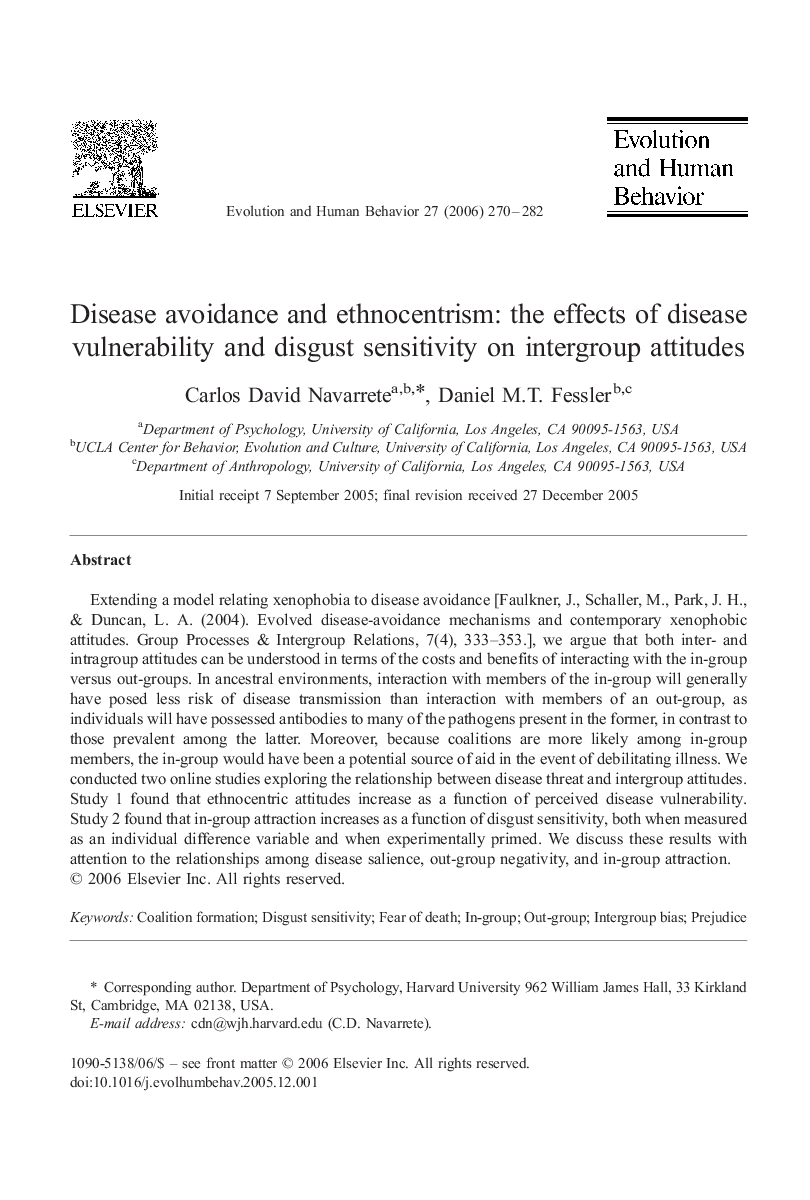| کد مقاله | کد نشریه | سال انتشار | مقاله انگلیسی | نسخه تمام متن |
|---|---|---|---|---|
| 943519 | 925478 | 2006 | 13 صفحه PDF | دانلود رایگان |

Extending a model relating xenophobia to disease avoidance [Faulkner, J., Schaller, M., Park, J. H., & Duncan, L. A. (2004). Evolved disease-avoidance mechanisms and contemporary xenophobic attitudes. Group Processes & Intergroup Relations, 7(4), 333–353.], we argue that both inter- and intragroup attitudes can be understood in terms of the costs and benefits of interacting with the in-group versus out-groups. In ancestral environments, interaction with members of the in-group will generally have posed less risk of disease transmission than interaction with members of an out-group, as individuals will have possessed antibodies to many of the pathogens present in the former, in contrast to those prevalent among the latter. Moreover, because coalitions are more likely among in-group members, the in-group would have been a potential source of aid in the event of debilitating illness. We conducted two online studies exploring the relationship between disease threat and intergroup attitudes. Study 1 found that ethnocentric attitudes increase as a function of perceived disease vulnerability. Study 2 found that in-group attraction increases as a function of disgust sensitivity, both when measured as an individual difference variable and when experimentally primed. We discuss these results with attention to the relationships among disease salience, out-group negativity, and in-group attraction.
Journal: Evolution and Human Behavior - Volume 27, Issue 4, July 2006, Pages 270–282